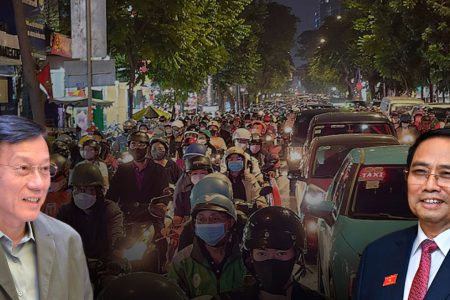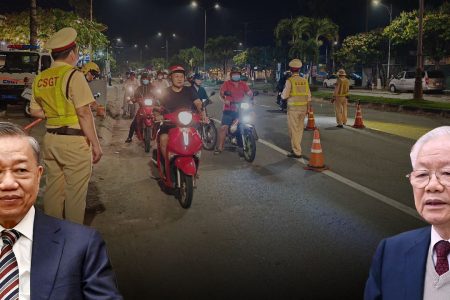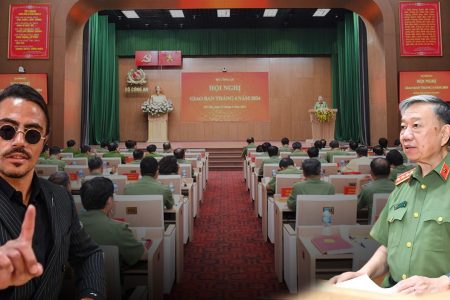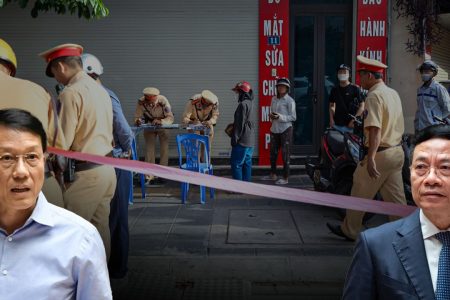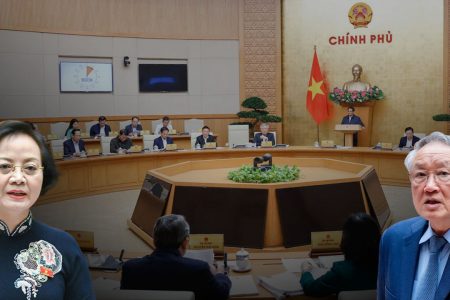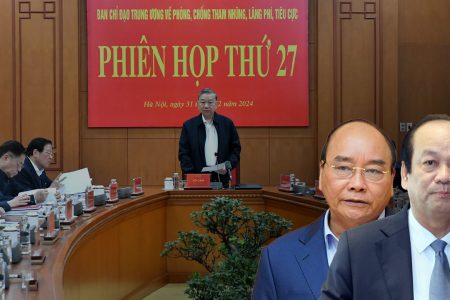
The Institute for Southeast Asian Studies (ISEAS) in Singapore released a book titled “Research on Vietnam’s control of online anti-state content” by Luong Nguyen An Dien- a researcher of the Program on Communication, Technology, and Society. Print copies of this book can be purchased from February 28, 2022.
In the content summary, the author says that over the past two decades, the focus on anti-State content has shaped the way Vietnamese authorities deploy a variety of censorship strategies with the aim of the dual goal is to create formal openness while maintaining tight control over online discussions.
Vietnam learns in a selective way from China’s online censorship system. The way the authorities operate is primarily based on what they see as a ‘threat’ in cyberspace, both at home and abroad, to Vietnamese social stability. This “threat” will then be used to the full to enforce tougher measures, similar to those taken in China.
But Vietnam does not have the ability to completely ban social networking platforms like China. Vietnamese authorities have sought to cooperate with and use social media platform companies to curb anti-state content on the Internet. The attractiveness of the Vietnamese market also made Facebook and Google’s YouTube accept censorship requests from the Hanoi Government.
The crackdown on anti-State content and fear-based censorship will likely continue to shape Vietnam’s Internet controls, at least for the foreseeable future.
Use multiple resources to control online content
One cybersecurity activist, who did not wish to be named, told RFA that the problem of Vietnam always trying and using various resources to control anti-State content in cyberspace has been going on for many years.
The measures taken by the Hanoi Government to censor anti-State content are diverse. The most prominent and effective is the use of online commentators and cooperation with technology companies on social networking platforms such as Google or Facebook:
“Control by using commentators or putting pressure on Facebook and Google.
Commentators often report a series of content that violates community standards. Another way is that the state-hired commentators direct the public’s attention to other scandals. For example, when there is negative information about the State, the public opinion, like Ms. Hang, will be directed from above to direct public opinion, directing people’s attention to another issue.
Vietnam tries to follow, but it can’t do it like China. Because in terms of technology, Vietnam is not as good as China, Vietnam can’t do blocking Facebook and Google.
There was a time when Facebook just entered Vietnam, Vietnam also tried to block and release the Zing social network, but it was not available. People still use Facebook, Vietnamese companies are not as strong, so they can’t push Facebook out.”
As a result, many dissidents are blocked or restricted from interacting with posts on social networks. This person said that he has repeatedly contacted digital rights organizations such as Access Now, asking to intervene with Facebook or YouTube to open the restrictions, but the cases that have been resolved are very few compared to the total number of blocked posts or accounts.
In addition, the anonymous cybersecurity activist said that he was summarizing similar cases to send reports to international human rights organizations or governments of other countries to question Vietnam for violating human rights to Internet access.
More and more sophisticated control
An information technology expert, Mr. Hoang Ngoc Dieu from Australia, told RFA that controlling content on the Internet, specifically social networking platforms, is one of the top efforts of the Politburo as well as the Commission on Propaganda Education of the Communist Party of Vietnam, and methods of content censorship are becoming more sophisticated:
“I’ve found that since the social media boom, the attempts to control it have become more and more sophisticated.
At first, they tried to bypass the firewall, saying that in Vietnam, the cable to the international line was broken, several times a year. Sometimes it squeezes the bandwidth to slow down the network so that people don’t want to continue following.
At the same time, there are also hidden threats at home. For example, there are friends who interact with me or have some comments on Facebook, those people are threatened by people in the government.”
Mr. Hoang Ngoc Dieu said there were bad experiences when using Facebook. Articles and images posted by him on Facebook have also been mass reported as violating copyright or violating community guidelines. The live streams, although very serious, are still quietly disappearing without any notice.
His account was repeatedly blocked, restricted, or even locked for a long time with the general excuse of “violating community standards.”
He even asked the organization Access Now to file his case to intervene with Facebook. A few months later, Facebook returned the account to him but still limited interaction, without giving a specific reason. Facebook only said it was a “complicated case.”
Therefore, Mr. Hoang Ngoc Dieu believes that there is a consensus between the Hanoi government and technology companies like Facebook, to limit accounts that often discuss political issues:
“I see that there seems to be an implicit consensus, although I do not have a scientific understanding, from the deduction of most of the brothers and sisters who voiced their analysis and criticism of the regime, it is clear to me that there is a certain consensus between Facebook and the Hanoi authorities to have some control and prevention.”
In August 2019, a report by the Hanoi Government on the field of information and communication showed that at the request of the State of Vietnam, Facebook removed more than 200 links to articles with content deemed “anti-party“, State, violating Vietnamese law.’
The Washington Post in the United States reported in October 2021 that the Facebook director personally made the decision that Facebook would comply with the requirements of the Hanoi Government.
The newspaper quoted activists in Vietnam as saying that Facebook had stepped up censorship of posts with “anti-State” content ahead of the party’s congress in January 2021, allowing the government to control nearly all of its posts. like all content on this platform.
A spokesman for Facebook responded to RFA via email about allegations that the company “worked together” with the Vietnamese Government to prevent “anti-State” content as follows:
“We have been open and transparent about our decisions in light of the rapid increase in efforts to block our services in Vietnam. As we shared last year, we have limited content in Vietnam to ensure that our services are available to the millions of users who depend on it every day.”
Thoibao.de (Translated)
Millions of THANKS!
Millions of people have watched our news and programs. More and more people choose to support us. Because there is an urgent need for an independent, critical voice in the media for Vietnam.
Your support will help everyone to have free access to thoibao.de. Because we consider the press not only a communication product but also a beneficial activity for the community.
There have been tens of millions of people every month who do not have to pay any money to read news on thoibao.de, but as you know, we have to invest a lot in order to have quality journalism. That’s why we need your support.
You can send your support as follow
1/ Via Paypal, Visa, Mastercard, America Experess, Sepa Lastschrift:
2/ Via bank transfer:
Account name: Thoibao.de
IBAN: DE36 1005 0000 0190 636319
SWIFT: BELADEBE
Address: Berliner Sparkasse, Ostseestr. 109, 10409 Berlin, Germany
When sponsoring or transferring money, please write the words: Support thoibao.de
Thank you very much
Le Trung Khoa – editor-in-chief
Email: info@thoibao.de
Viber/WhatsApp/Telegram/Signal: +49 170 2363084









